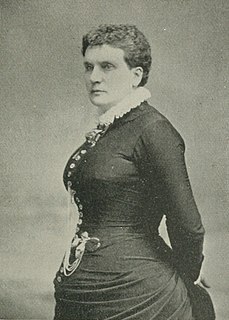A Quote by John Buchan
"What would you call the highest happiness, Lewie?" he asked. "The sense of competence," was the answer, given without hesitation.
Related Quotes
If you asked twenty good men to-day what they thought the highest of the virtues, nineteen of them would reply, Unselfishness. But if you asked almost any of the great Christians of old he would have replied, Love - You see what has happened? A negative term has been substituted for a positive, and this is of more than philological importance. The negative ideal of Unselfishness carries with it the suggestion not primarily of securing good things for others, but of going without them ourselves, as if our abstinence and not their happiness was the important point.
I have often asked myself whether, given the choice, I would choose to have manic-depressive illness. If lithium were not available to me, or didn't work for me, the answer would be a simple no... and it would be an answer laced with terror. But lithium does work for me, and therefore I can afford to pose the question. Strangely enough, I think I would choose to have it. It's complicated.
I have never looked upon ease and happiness as ends in themselves - this critical basis I call the ideal of a pigsty. The ideals that have lighted my way, and time after time have given me new courage to face life cheerfully, have been Kindness, Beauty, and Truth. Without the sense of kinship with men of like mind, without the occupation with the objective world, the eternally unattainable in the field of art and scientific endeavors, life would have seemed empty to me. The trite objects of human efforts - possessions, outward success, luxury - have always seemed to me contemptible.
So what is happiness? I am sure this question will be asked through the ages. And I doubt there is one answer for all people. Like heaven and hell, one person's happiness can be another person's unhappiness, which is why I'm not attempting to tell you what to do to find your happiness. I have enough trouble finding and hanging onto my own true happiness.
One Dilbert Blog reader noted that current research shows that happiness causes success more than success causes happiness. That makes sense to me. There's plenty of research about people having a baseline of happiness that doesn't vary much with circumstances. And given that happy people are typically optimistic, energetic, and fun to work with, I can see how happiness would lead to success.
Religion is not the hero of the day, but the zero. In any exposition of the products of brains, the Sunday-School takes the booby prize. . . . Man has asked for truth and the Church has given him miracles. He has asked for knowledge, and the Church has given him theology. He has asked for facts, and the Church has given him the Bible. This foolishness should stop. The Church has nothing to give man that has not been in cold storage for two thousand years. Anything would become stale in that time.
John Wesley tells of a dream he had. In the dream, he was ushered to the gates of Hell. There he asked, "Are there any Presbyterians here?" "Yes!", came the answer. Then he asked, "Are there any Baptists? Any Episcopalians? Any Methodists?" The answer was Yes! each time. Much distressed, Wesley was then ushered to the gates of Heaven. There he asked the same question, and the answer was No! "No?" To this, Wesley asked, "Who then is inside?" The answer came back, "There are only Christians here."
Happiness itself is sufficient excuse. Beautiful things are right and true; so beautiful actions are those pleasing to the gods. Wise men have an inward sense of what is beautiful, and the highest wisdom is to trust this intuition and be guided by it. The answer to the last appeal of what is right lies within a man's own breast. Trust thyself.





































